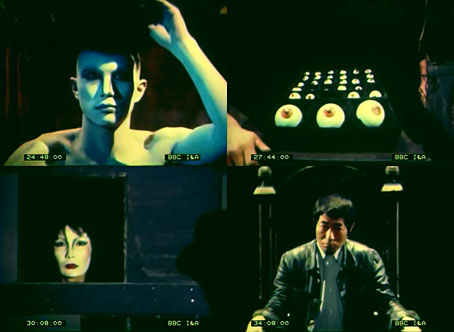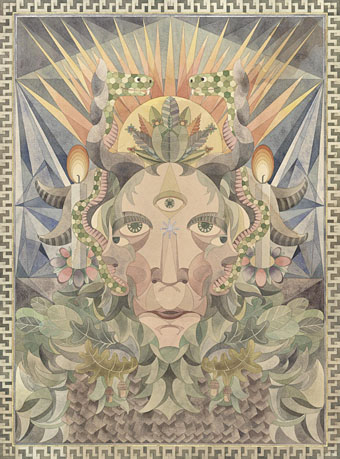Tenjo Sajiki was an avant-garde theatre troupe led by Shuji Terayama from 1967 to 1983. The name of the troupe is taken from the Japanese title of Marcel Carné’s Les Enfants du Paradis, a film I happened to be watching again this weekend. Terayama is known more in the West for his cinematic work than his many plays, consequently I never expected to see any of his theatrical productions until stumbling across this short TV documentary about a performance of Jonathan Swift’s Directions to Servants that Tenjo Sajiki were staging in Europe in 1978. (There’s actually a lot of Tenjo Sajiki footage out there once you start looking for it, including whole videos of original stagings.) The film has the additional attraction of being a rare early episode from the BBC’s Arena arts series, made during the period when the programmes were only 30 minutes long, with director Nigel Finch often acting as unseen commentator and interviewer. Regular readers will be aware that Arena has cult status on these pages but I didn’t get to see many of the earliest programmes, and usually don’t expect to find those from the late 1970s at all, video-recording only really becoming widespread a few years later.
Whoever unearthed this film must have liberated it from the BBC archives since it has a time code running through it. The film is a curio more than anything else which makes me wonder why anyone went to this amount of trouble to find something that isn’t very revealing about its subject. The play was a difficult one for audiences, being performed in Japanese while the audience was forced to watch select views on TV monitors or sit inside black boxes being pushed around the performers by stage-hands. Terayama had treated the audience like this for other plays, the disruption being his way of reflecting our own disrupted view of real events. It’s a shame that Arena caught Tenjo Sajiki while they were touring this particular play. Shortly before this the troupe had staged an adaptation of Bartók’s The Miraculous Mandarin which was followed a few years later by Duke Bluebeard’s Castle, either of which would have been more interesting to see.
Previously on { feuilleton }
• Les Chants de Maldoror by Shuji Terayama



